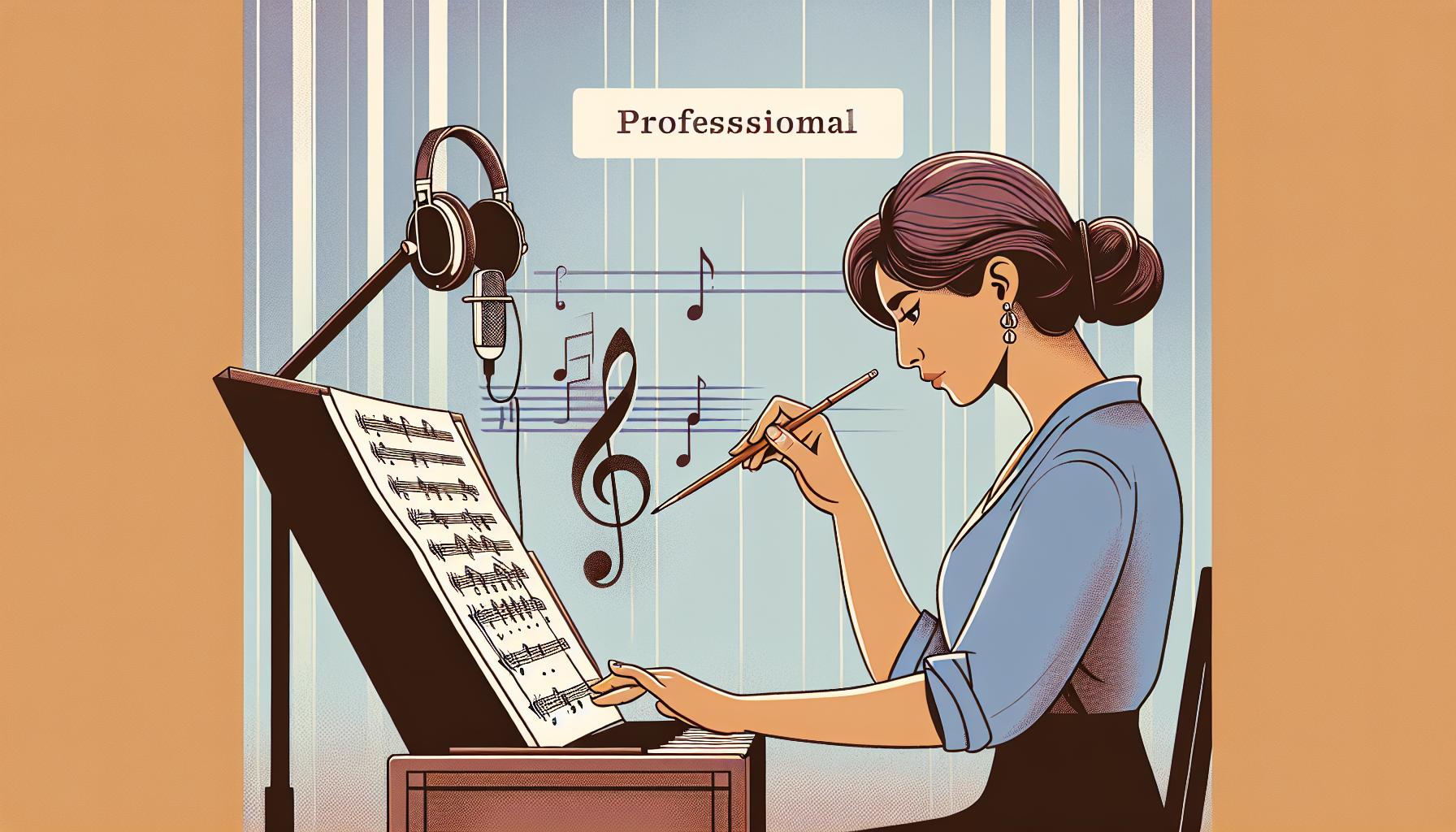For many piano enthusiasts, the thought of skipping a day of practice can feel like a major setback. It's as if each missed session puts them a step further away from mastering their favorite Chopin nocturne or nailing that elusive jazz improvisation. But is this guilt over missing a single day really justified, or is it possible that a day off could actually be beneficial?
The idea of taking a break might seem counterintuitive to dedicated pianists. After all, consistent practice is often preached as the holy grail of progress. Yet, there's more to developing musical prowess than meets the eye. Let's dive into whether skipping piano practice for a day is a cardinal sin or a secret weapon in disguise.
The Importance of Consistent Practice
Consistent practice is often heralded as the cornerstone of mastering any skill, especially when it comes to playing the piano. Musicians, educators, and researchers alike emphasize the value of regularity in practice, citing it as crucial for progress. This section delves into why embedding a routine of practicing daily can be so beneficial for piano enthusiasts.
Firstly, muscle memory plays a significant role in learning to play the piano. Each time a pianist practices, they're not just learning a piece of music—they're training their muscles to remember the movements. This kind of memory is only solidified through repetition. Skipping days could slow this process, making it harder for the fingers to glide across the keys without conscious thought.
Secondly, consistent practice aids in overcoming challenges. Anyone who's tried to master a difficult piece knows the frustration of hitting a wall. These obstacles are best overcome through regular, focused practice where problems can be tackled methodically. Often, a breakthrough in a tricky section comes after several sessions of diligent work, underscoring the importance of not letting a day slip by unnoticed.
However, it's not just about quantity; quality of practice is equally critical. Practicing every day for the sake of it can lead to mindless repetition and burnout. Effective practice means setting clear goals, whether it’s polishing a certain passage, improving timing, or working on expression. This focused approach ensures that each practice session is productive, building towards incremental improvement.
The debate on practice frequency also includes considering the individual's needs and goals. For some, daily practice might be essential to meet their objectives, while others may find that taking occasional breaks actually enhances their enthusiasm and creativity when they return to the keyboard.
| Aspect of Practice | Importance |
|---|---|
| Muscle Memory | Essential for automaticity and ease of play |
| Overcoming Challenges | Critical for mastering difficult pieces |
| Quality of Practice | Prevents burnout and ensures productivity |
| Individual Needs & Goals | Dictates the necessity of daily practice |
The idea of consistency is also about maintaining a connection to the instrument and the music. Each practice session is an opportunity to deepen one's understanding and feel for the piano, building a relationship that goes beyond mere technical skill. This connection is what often brings the most joy to musicians and is nurtured through regular engagement.
The Benefits of Taking a Break

While the journey of mastering the piano is filled with continued practice and dedication, taking a day off occasionally has its own set of benefits that can contribute significantly to a musician's growth and well-being.
Mental and Physical Rest is paramount for pianists, who often engage in long hours of practice. Muscles, particularly in the hands and arms, require time to recover from the repetitive stress of playing. Similarly, the brain benefits from stepping away, reducing the risk of burnout and mental fatigue. This break in routine allows for a rejuvenation period, ensuring that the musician returns to their practice with renewed energy and focus.
Enhanced Creativity often follows a period of rest. Stepping back from rigorous practice sessions can give musicians the space to think more creatively about their music. This time away from the instrument can lead to a fresh perspective, inspiring new ideas for interpretation or techniques that might not have emerged during continuous practice.
Improved Problem-Solving Skills are another unexpected advantage of taking breaks. With a bit of distance, pianists might find that they’re able to approach challenging pieces or technical difficulties with new strategies. Solutions that seemed elusive during back-to-back practice sessions might become clearer with a rested mind.
The Opportunity for Listening and Learning presents itself when taking a day off. Musicians can use this time away from their instrument to listen to recordings of themselves or others, study musical scores, or immerse themselves in the works of composers they're currently playing or wish to play in the future. This broadening of auditory experience and theoretical knowledge can deepen their understanding of music and inspire their practice sessions when they return to the piano.
Balancing Life and Practice is essential for all musicians, regardless of their level of expertise. It's easy for dedicated pianists to let their practice consume all their free time, but taking a day off allows them to engage in other activities they enjoy, spend time with family and friends, or simply rest. This balance is crucial for mental health and overall happiness, both of which are integral to a productive and fulfilling musical journey.
As pianists consider the benefits of incorporating rest into their practice regimen, it's important to remember that taking a break does not signify a lack of dedication or progress. Rather, it's a strategic approach to ensure that their musical journey is sustainable and enjoyable, allowing for growth both as a musician and as an individual.
Strategies for Making Up for Missed Practice

Skipping a day of piano practice isn't the end of the world. In fact, it can sometimes be beneficial, as it allows musicians to rest and come back to their instrument with fresh energy and enthusiasm. However, it's important to effectively manage these missed sessions to ensure continuous progress. Here are several strategies musicians can employ to make up for lost time without overwhelming themselves.
Firstly, reassessing the weekly practice schedule can help redistribute practice time effectively. If they've missed a day, pianists might consider adding a few extra minutes to their remaining practice days. It's not about cramming; it’s about smartly reallocating time. For instance, if they usually practice for an hour a day, adding an extra 10-15 minutes to each session can compensate for a missed day without causing burnout.
Secondly, focused practice sessions are more beneficial than simply adding more time. Musicians should identify specific areas they feel they've fallen behind in and dedicate their next practice session to these. Targeted practice ensures that time is being used efficiently, focusing on quality over quantity. Techniques such as the Pomodoro Technique, where practice is broken down into intense focus sessions followed by short breaks, can be particularly effective in making up for lost time.
Integrating mental practice into their routine on days when playing the instrument isn't possible is another useful strategy. Mental practice involves going over music theory, analyzing scores, or visualizing the playing of a piece in their mind. Research shows that mental practice can significantly improve musical performance, making it a valuable tool for days away from the keyboard.
Lastly, listening to music and critically analyzing performances can also serve as an effective form of practice. Musicians can listen to recordings of the pieces they are currently mastering, paying close attention to interpretation, technique, and dynamics. This can offer fresh insights and inspiration, feeding back into their practice once they return to the piano.
| Strategy | Description |
|---|---|
| Reassess Weekly Schedule | Add extra practice time to remaining days. |
| Focused Practice Sessions | Prioritize specific areas for improvement. |
| Mental Practice | Engage in music theory, score analysis, and visualization on non-practice days. |
| Analytical Listening | Listen to and analyze recordings for fresh insights. |
Common Myths About Skipping Practice

One common misconception about missing a piano practice session is that it leads to immediate regression in skills. Many fear that even a single day away from the keyboard can undo weeks of hard work. However, this simply isn't true. The reality is that skills, especially those honed over time, don't vanish overnight. In fact, a brief pause can sometimes benefit musicians, providing a much-needed break for mental and physical rest.
Another myth that circulates among pianists is the idea that a longer, more intense practice session can make up for missed days. This approach, though well-intentioned, can actually be counterproductive. Cramming hours of practice into one day can lead to fatigue and diminishing returns, where the quality of practice deteriorates because the mind and body are overworked.
Many believe that skipping practice will inevitably lead to a loss of motivation or disrupt the routine they've worked so hard to establish. While there's a kernel of truth in the importance of routine, flexibility is also crucial. Life is unpredictable, and being able to adjust without feeling guilty is an important skill for any pianist. Instead of seeing missed sessions as a failure, they can be viewed as an opportunity to practice adaptability and resilience.
Engaging with Music in Different Ways
On days when sitting at the piano isn't possible, there are still valuable ways to stay connected with music:
- Mental practice: Visualizing playing, reading through scores, or mentally rehearsing pieces can keep the music fresh in your mind.
- Critical listening: Listening to recordings of the pieces you're learning, or performances by admired artists, can provide insights and inspiration.
- Theory and composition: Dedicating time to understanding music theory or experimenting with composition can deepen your musical knowledge and creativity.
These activities can keep the momentum going, even when away from the piano, and contribute significantly to a musician's development.
Adjusting Practice Schedules
It's helpful to remember that practice schedules should serve the individual's needs and goals. If missing a day becomes necessary, rather than doubling the practice time the next day, consider redistribiting the missed hours across the week. This method ensures that each practice session remains focused and productive, preventing burnout and keeping enthusiasm for playing alive.
Conclusion
Skipping a piano practice day isn't the end of the world. What's crucial is how pianists adapt to these interruptions. By embracing flexibility, engaging with music in varied ways, and wisely redistributing practice hours, they can maintain their progress without burnout. It's about quality, adaptability, and a holistic approach to music learning. So next time you miss a day, remember it's an opportunity to explore music differently and keep the passion alive.
Harlan Kilstein began playing piano during covid with no piano background at all. He taught himself how to play learning what to do and what not to do.
Today he's an advanced intermediate player and can help you grow in your skills because he learned all this on his own.








